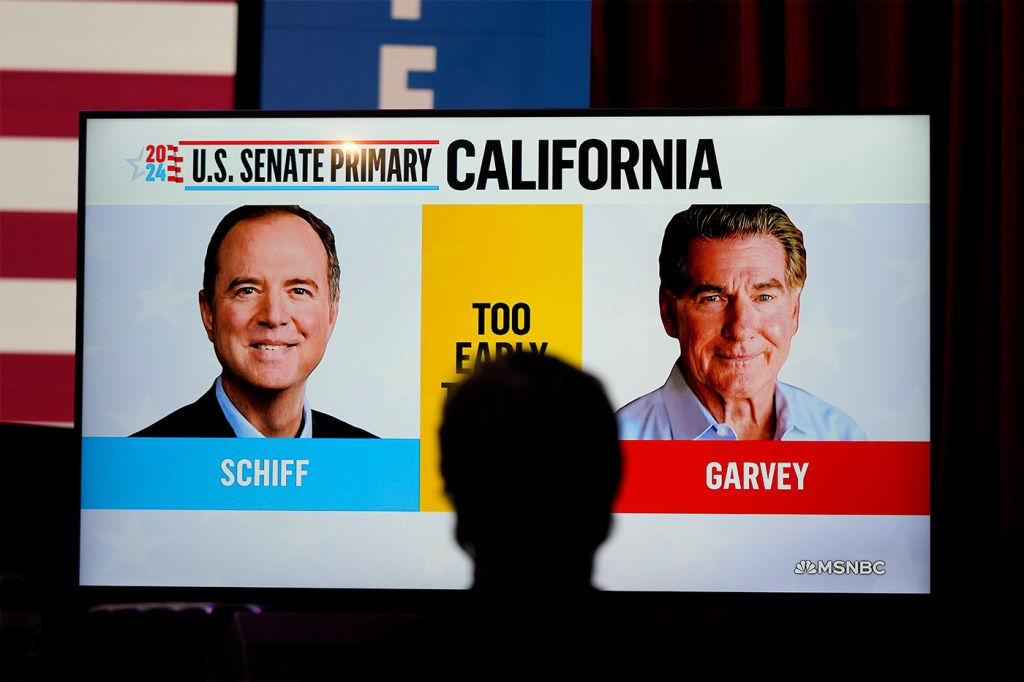When and how is the call made to declare a winner on election night?
Already twice this century, networks have made calls that led to a contested election result, experts noted.

With Donald Trump and Kamala Harris neck and neck in the polls, Northeastern University political experts say the 2024 presidential election could come down to a handful of ballots in one state, and recounts and lengthy court challenges.
Or, experts say, it may be a clear victory for one candidate or the other by 10 p.m. on election night.
“There’s a huge range of possibilities,” says Northeastern University polling expert David Lazer.
“It’s really a coin flip at this point,” adds John Wihbey, associate professor of media innovation and technology at Northeastern.
So how will we know who wins? The news media.
But Northeastern University experts say that litigation (both existing and anticipated), political polarization among the electorate, the culture of “scoops,” and the memories of the 2000 and 2020 presidential elections, and claims of political fraud put tremendous pressure on the newsrooms to make a call this year.
And that may mean a little bit of a wait on the evening of Nov. 5.
“I think there should be a note of caution, particularly in this election, and not be premature,” Wihbey says. “There is a really fine balance between making a rigorous, evidence-based call and yet not being premature.”
Meg Heckman, associate professor of journalism at Northeastern and a journalist with experience making newsroom election calls, concurs.
“Speed matters, but accuracy and honesty matter more,” Heckman says.
Elections are administered by the states, so there is no single U.S government agency or federal commission that tallies results and declares winners. Thus that role falls to the news media, with the Associated Press playing the role of the “definitive source.”
But that doesn’t mean that other networks will defer to the AP if they feel they can confidently make a call.
Featured Posts
“The networks are going to have pretty sophisticated operations, both looking at exit polls, looking at exactly where votes are coming in from, benchmarks relative to the last election and so on,” says Lazer, university distinguished professor of political science and computer sciences at Northeastern.
The risks of making such a call are high, however.
Already twice this century, networks have made calls that led to a contested election result, experts noted.
“We’re not living just in the shadow of 2020, but we’re also living in the shadow of 2000,” Lazer says.
On election night in 2000, the networks called Florida — and the election — for Vice President Al Gore, before retracting that determination and calling Florida and the election for Republican George W. Bush. They then retracted that call as well when it became clear that the votes were close enough to prompt a recount. The Supreme Court ultimately voted 5-4 in favor of stopping a statewide Florida recount and delivered the election to Bush.
On election night in 2020, Fox News called Arizona — and the presidency — for Democrat Joe Biden.
Wihbey said that the networks’ calls in both cases were extremely important.
“The initial signals sent by the news outlets on election night, we’ve seen over the past couple decades can be really consequential in terms of framing the debate, setting the terms for potential contestation and litigation and, in some ways, providing an early signal of legitimacy for the election,” Wihbey says.
For instance, Gore called Bush on election night in 2000 saying he was going to concede and then called him back and retracted a half-hour later, a decision that still rankles Democrats. Meanwhile, the Arizona call was “the nail in the coffin” for President Donald Trump’s campaign’s premature victory call. Trump and his campaign subsequently filed 64 lawsuits alleging election fraud. None of the cases were successful, and conservative legal experts and Trump’s attorney general, William Barr, declared no widespread fraud in the election. Nevertheless, some Republicans believe what has been called the “Big Lie,” according to a recent survey.
“That may have saved, maybe not democracy writ large, but at least the integrity of that election,” Wihbey says of the Arizona call. “There’s a pretty good chance that if that isn’t called in that way so decisively, that it really opens the door for a lot of the illegitimate contestation and frankly, malfeasance that took place with the fake electors and all the way up to January 6.”
So, with all this in mind, what should voters do as they anxiously await election results on Nov. 5?
“Be patient, and don’t get on X,” Lazer says.
Lazer says that early rumors on social media will be “at best noisy and at worst misinformation,” while the networks will have “very sophisticated operations” to call elections.
Heckman also stresses patience.
“Be patient, understand that counting ballots takes time and that responsible journalism takes time,” Heckman says. “Be patient and be just a little bit skeptical — have your ears open for speculation, for thin sourcing, wild guesses and be careful where you’re getting information from The major networks and major news organizations are not the only credible sources of information, but there are a lot of bad actors online right now with the intent to spread dis- and misinformation.”
And along with patience, Wihbey stresses perspective.
“We shouldn’t forget as American voters that from the time of the founding to now, every national election, pretty much, has been a really messy, difficult, contentious process,” Wihbey says. “It seems to be that people are better conditioned these days — particularly because of 2000 and 2020 — to kind of acknowledge that and to be a bit patient.”











